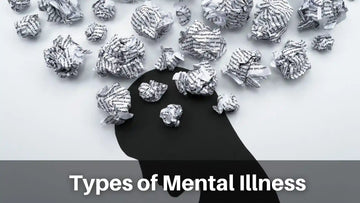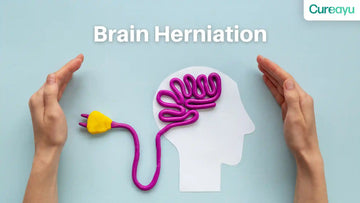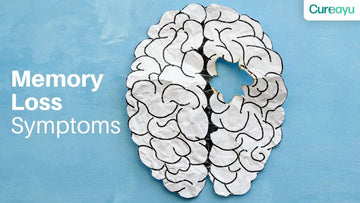With more than 7.5% of the population suffering from various mental health diseases, India is host to one of the largest populations in the world dealing with mental health issues. Though there have been considerable advances, mental health is still a major concern that is often overlooked due to the demands of daily living. To address this urgent problem, it is essential to recognize the symptoms, look for suitable treatment, and work for long-term fixes.
What is Mental Health
Certainly! Mental health is a comprehensive state of well-being that encompasses various aspects of our emotional, psychological, and social functioning. It goes beyond the absence of mental illness and reflects our ability to effectively manage our emotions, thoughts, and behaviors in various situations. Here's a deeper explanation
-
Emotional Well-being: Mental health involves being in touch with our emotions, understanding them, and managing them constructively. It includes experiencing a range of emotions such as happiness, sadness, anger, and fear in a balanced manner.
-
Psychological Well-being: This aspect of mental health refers to our cognitive processes, including our thought patterns, beliefs, and perceptions. It involves having a positive self-image, realistic goals, and the ability to cope with life's challenges effectively.
-
Social Well-being: Mental health is also influenced by our interactions and relationships with others. Healthy social connections provide support, belonging, and a sense of community, contributing significantly to our overall well-being.
Also Read: A Deep Dive into Depression Signs, Causes, and Treatments
Mental health affects various facets of our lives
- Handling Stress: A good mental health enables us to cope with stressors effectively, bounce back from setbacks, and adapt to changes in life.
- Relationships: It influences how we communicate, empathize, and build connections with others. Positive mental health fosters healthy relationships characterized by trust, respect, and support.
- Decision Making: Our mental health influences our ability to make sound decisions, solve problems, and set realistic goals for ourselves.
- Overall Well-being: Mental health plays a crucial role in our overall quality of life, affecting our sense of purpose, fulfillment, and satisfaction.
In essence, mental health is not just the absence of mental illness but a state of well-being that allows us to live life to its fullest potential, navigate challenges with resilience, and cultivate meaningful relationships and experiences. It requires attention, nurturing, and proactive efforts to maintain and enhance.
Mental Health Issues
Mental health issues encompass a wide range of conditions that affect a person's thoughts, emotions, and behaviors, often leading to distress and impairment in daily functioning. These issues can vary in severity and duration, ranging from temporary challenges to chronic disorders. Here's a closer look at mental health issues:
Types of Mental Health Issues: Mental health issues can manifest in various forms, including:
- Mood Disorders: Such as depression, bipolar disorder, and seasonal affective disorder, characterized by persistent changes in mood.
- Anxiety Disorders: Including generalized anxiety disorder, panic disorder, phobias, and obsessive-compulsive disorder, marked by excessive worry or fear.
- Psychotic Disorders: Like schizophrenia, involving disruptions in thinking, perception, and behavior.
- Trauma-Related Disorders: Such as post-traumatic stress disorder (PTSD), triggered by experiencing or witnessing traumatic events.
- Eating Disorders: Such as anorexia nervosa, bulimia nervosa, and binge-eating disorder, involving unhealthy relationships with food and body image.
- Substance Use Disorders: Involving problematic patterns of substance abuse or addiction, leading to significant impairment in functioning.
Also Read: Overcoming Anxiety Naturally: Causes, Treatment, and Herbal Medicines Unveiled
Importance Of Mental Health
- Resilience: Mental health acts as a sturdy foundation, enabling individuals to bounce back from setbacks, cope with stressors, and adapt to changing circumstances. It provides the inner strength and emotional stability needed to confront life's adversities with resilience and determination.
- Healthy Relationships and Productivity: A sound mental health state fosters positive interactions with others, fostering trust, empathy, and effective communication. This, in turn, enhances productivity by promoting collaboration, creativity, and goal achievement, both in personal and professional spheres. Strong relationships and a productive mindset contribute significantly to overall well-being and life satisfaction.
- Negative Outcomes: Neglecting mental health can lead to the development of mental health disorders like depression and anxiety, impacting various facets of life. Additionally, untreated mental health issues may manifest in physical health problems, underscoring the interconnectedness of mental and physical well-being. Proactively addressing mental health concerns is vital for preventing adverse outcomes and maintaining overall health and wellness.
Early Signs and Symptoms That You Need Mental Health Help
- Timely Intervention: Identifying signs of mental health issues early allows for prompt action and support, preventing escalation and facilitating effective management.
- Persistent Emotional Distress: Enduring feelings of sadness, anxiety, or hopelessness beyond typical fluctuations could signal underlying mental health concerns, warranting attention and support.
- Sleep and Appetite Changes: Noticeable alterations in sleeping or eating habits, such as insomnia, oversleeping, loss of appetite, or overeating, may indicate disruptions in mental well-being and require assessment.
- Cognitive Challenges: Difficulty concentrating, remembering, or making decisions that interfere with daily functioning could be indicative of underlying mental health issues requiring professional evaluation and intervention.
- Social Withdrawal and Mood Swings: Retreating from social interactions or experiencing sudden mood swings that disrupt relationships and daily activities may signify underlying mental health struggles that warrant exploration and support.
Why You Need Mental Health Care
- Destigmatization and Coping: Professional mental health care breaks stigma and equips individuals with coping strategies tailored to their needs.
- Safe Exploration: It provides a judgment-free space for exploring emotions, fostering self-awareness and growth.
- Preventive Care: Early intervention prevents symptom escalation, enhancing overall well-being and quality of life.
Also Read: Exploring the Types and Strategies for a Stress-Free Life
Ways to Improve Mental Health & Wellness
- Self-Care: Prioritize activities like exercise, sufficient sleep, and balanced nutrition to nurture your well-being.
- Mindfulness & Meditation: Incorporate practices that manage stress and deepen self-awareness, such as mindfulness and meditation.
- Relationships & Social Connections: Foster supportive relationships and seek out social connections to promote emotional resilience.
- Hobbies & Joyful Activities: Engage in hobbies and activities that bring joy and fulfillment, enhancing overall happiness.
- Goal Setting & Boundaries: Establish realistic goals and boundaries to manage stress and prevent overwhelm, maintaining a healthy balance in life.
Conclusion
- Prioritizing mental health is essential for a fulfilling and balanced life.
- By recognizing the signs, seeking help, and implementing self-care practices, individuals can nurture their mental well-being and lead happier, more resilient lives.
- Let's break the stigma surrounding mental health and work towards a society that values and supports mental well-being for all.












